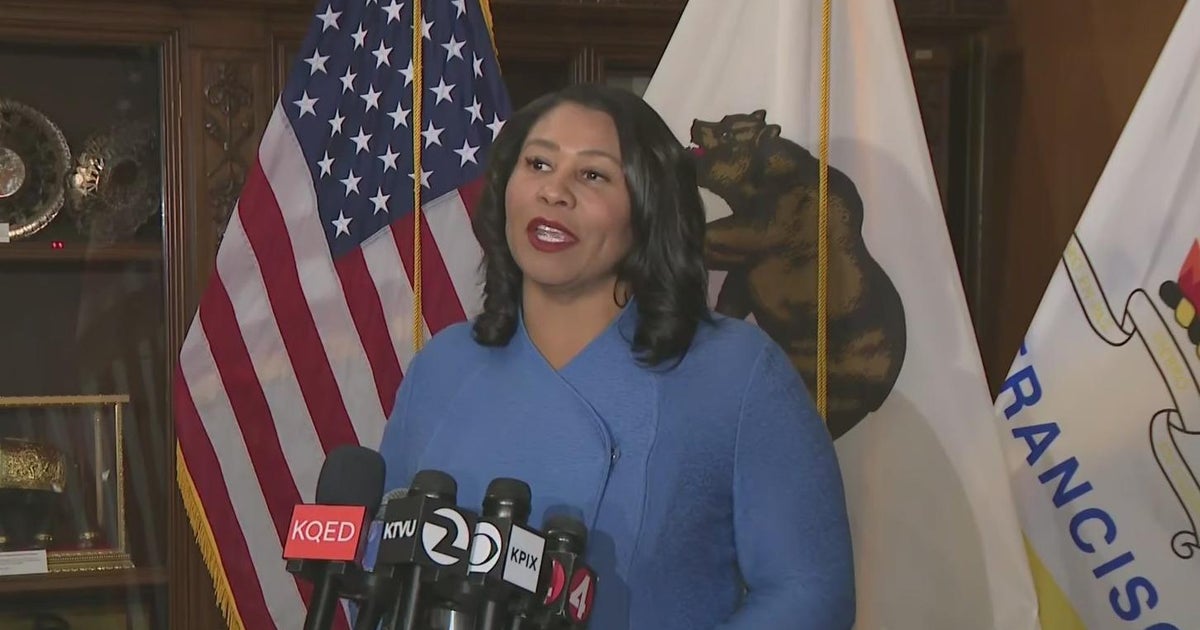Oakland Forms Task Force To Address Racial Disparities Of Coronavirus Pandemic
OAKLAND (CBS SF) -- Oakland Mayor Libby Schaaf and other regional leaders announced Friday that they've formed an emergency task force to address what they say are the racialized impacts of the COVID-19 coronavirus and create state legislation to reduce health disparities for people of color.
Schaaf said the COVID-19 Racial Disparities Task Force will respond to what she said are disparate impacts of the virus among people of color, particularly blacks, Latino, Asian and Native American residents, including those experiencing poverty, immigrants, elderly people and people with disabilities.
"There has not been justice with regard to race and health disparities for a long time," Schaaf said. "We have an opportunity to not just improve our actual response to this disease, but to look at permanent changes to our laws and policies so we don't keep seeing these disparities repeat themselves over and over again."
Across the country, African Americans are dying at disproportionately higher rates due to the pandemic, a trend that is playing out in the Bay Area as well.
According to data released Friday by the state health department, African Americans account for 11 percent of all the coronavirus deaths in the state, but only make up 6 percent of the population. The data shows other races are not being impacted in such a disproportionate way.
DATA: California Dept. of Public Health COVID-19 Updates
"We are seeing that social vulnerability manifest itself in California," said Dr. tony Iton with the California Endowment.
Dr. Iton says there are number of reasons for that, icluding the fact many could be essential workers. "The occupational exposure is greater in African Americans and other socially vulnerable populations."
But Iton says the bigger issue is the lack of access to affordable healthcare. "You've got higher levels of underlying disease, diabetes, high blood pressure, chronic obstructive lung disease," he said.
All of the above are risk factors that make it more likely a person will die if they get COVID-19.
The task force says the immediate need is to improve access to COVID-19 testing and PPE in under-served communities, then it will look toward more long term solutions.
Among the strategies the task force will pursue are developing a "COVID-19 Vulnerability Index" measure to inform decisions to target communities most at risk for prevention and treatment investments and collecting and reviewing demographic data to inform targeted equity strategies.
The task force also will promote health check-ins to high-risk populations to identify health issues early and facilitate access to further care if it's needed.
In addition, it will make interventions to reduce health risk factors for new coronavirus hospitalizations and deaths, such as medically supportive food, that lower the incidence and severity of common underlying chronic health conditions.
The task force will operate under the auspices of the Oakland Thrives Leadership Council, a public-private collective impact council jointly led by Kaiser Permanente, the city of Oakland, the Oakland Unified School District and Alameda County.
The four co-chairs of the task force are Schaaf, Alameda County Supervisor Wilma Chan, Assemblyman Rob Bonta, D-Oakland, and Dr. Tony Iton, the senior vice president for the California Endowment. Among the other members of the task force are Rep. Barbara Lee, D-Oakland, Alameda County Supervisor Keith Carson and Jane Garcia, the chief executive officer of La Clinica de la Raza.
"The virus does not discriminate but it does devastate some races more than others," Schaaf said.
"We must take this unprecedented pandemic to create an unprecedented justice for people of color and vulnerable residents. The goal of our task force is to elevate the reality of racial disparities in healthcare and do everything we can to fix them right now for the long term," she said.
Bonta said, "Through this task force and the coalition we have built to address these issues, I am hopeful we can push for robust policy changes to reduce and remove health disparities for impacted communities in California."
The task force will announce a virtual hearing within two weeks to receive input on its work.
© Copyright 2020 CBS Broadcasting Inc. All Rights Reserved. This material may not be published, broadcast, rewritten, or redistributed. Katie Nielsen and Bay City News Service contributed to this report.



